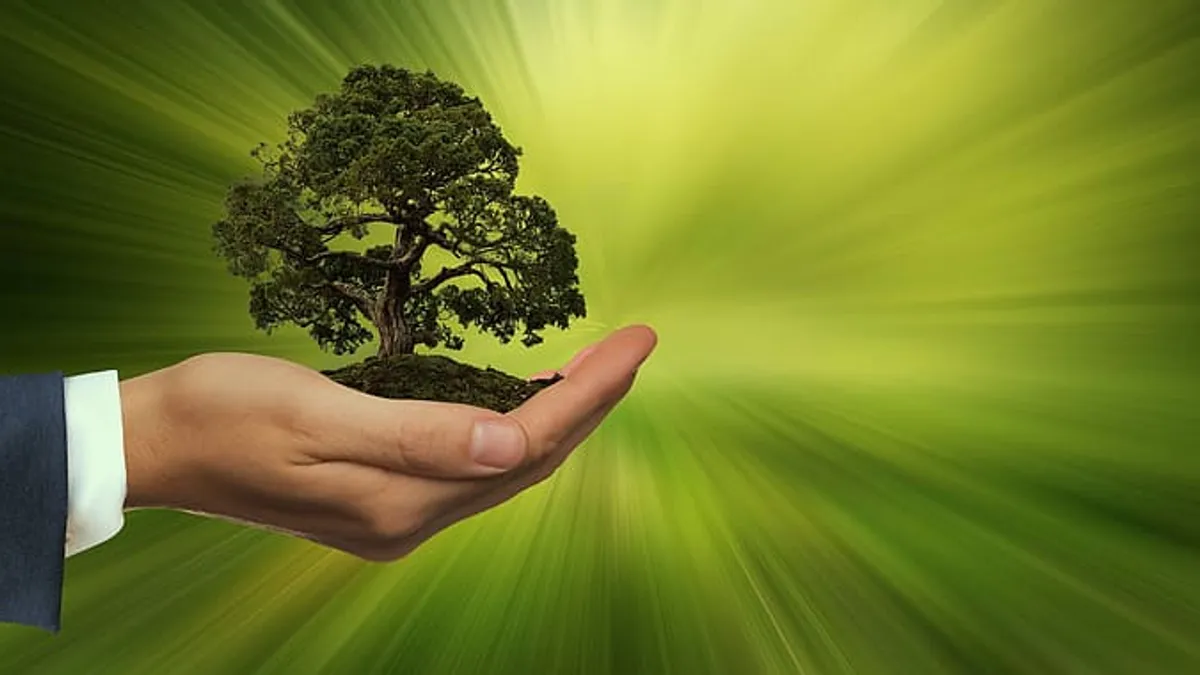Dive Brief:
- 78% of surveyed consumers said companies should adopt environmental practices, and 44% said the government, rather than individuals, should take the lead when addressing environmental issues, according to a press release emailed to Marketing Dive about GfK Consumer Life's new Green Gauge study.
- Millennials are the most enthusiastic about the environment, with 41% saying it plays a role in their purchase consideration all or most of the time. That represents a 13-point jump over the responses of 22-to-39 year-olds in 2010 and is 10 points higher than the U.S. average of 31%.
- The report's findings indicate that more consumers than ever believe it is important for brands to demonstrate environmental responsibility, showing that even in the face of pressing economic and health crises, consumers' commitment to the environment has not waned. GfKsolicited responses from more than 36,000 people ages 15 or over in 25 countries during spring 2020.
Dive Insight:
Despite the continuing threat of the COVID-19 pandemic and its surrounding economic fallout, the percentage of people who believe environmental issues should take a backseat to economic or well-being issues dropped 13 points, from 54% to 41%, over the past decade, according to GfK Consumer Life's Green Gauge report.
Meanwhile, consumers reported that the barriers to purchasing and using environmentally friendly products are falling. For example, only 57% of consumers said green products are too expensive (compared with 67% in 2010), and only 29% said eco-friendly products do not work as well when compared with other products, down from 34% a decade ago.
Millennials show the greatest enthusiasm for companies that demonstrate green practices, including being more likely to choose energy efficient cars and home products. However, as a consumer cause, the environment spans demographics. Baby Boomers and women are more likely to believe companies should increase their environmental friendliness, while Millennials are most inclined to look to the government, rather than individuals, to take action. In this year’s study, only 24% of consumers fell into the Green Gauge's "Jaded" (i.e., deeply skeptical) group, compared with 38% in 2010. At the same time, the percentage who are "Glamour Greens," or proud of their eco-friendly behaviors, increased 10 points, from 20% to 30%.
Sustainability has also been shown to be a good business practice. A 2019 study conducted by the NYU Stern Center for Sustainable Business and IRI found sustainability-marketed products were responsible for 50% of market growth among CPG brands between 2013-2018. Accordingly, environmental friendliness has become a key point in many companies' marketing strategies.
While brands touting their green bona fides is by no means new, the pandemic coupled with a record number of wild fires may have stepped up consumer urgency about environmental issues. Amid warnings that continuing climate change could make pandemics more frequent, consumers have noticed companies' and governments' reactions to the health emergency.
"We've seen that you can stop pollution on a dime, you can clear up the skies overnight," Tensie Whelan, director of the NYU Stern Center for Sustainable Business, told Marketing Dive earlier this year. "You can actually pour an enormous amount of money at a problem in ways that everybody's told us we can't."














